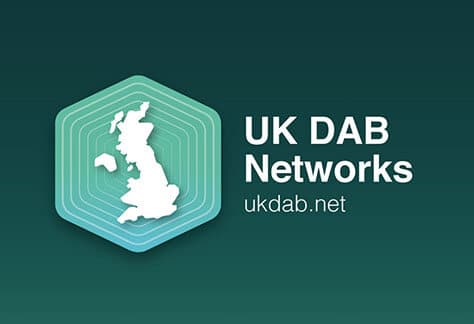LONDON — The full rollout of small-scale DAB in the United Kingdom has moved a step closer with regulator Ofcom receiving 45 applications for new multiplex licenses.
A trial of 10 small-scale multiplexes started in 2015, and now the U.K. regulator has advertised the first batch of permanent licenses in 25 local areas, from the remote Isles of Scilly off the coast of Cornwall, to the Scottish city of Edinburgh. Once awarded, licensees will have 18 months to build transmission networks and commence broadcasting.
Technical Evolution
DAB digital radio continues to grow in popularity in the U.K., now accounting for 40% of all radio listening and nearly 70% of digital listening.
Ash Elford, managing director of UK DAB Networks, and part of the small-scale DAB trial from its start, explained how the technical equipment required had progressed. “Originally the multiplexes launched with equipment loaned by Ofcom, but over the last five years, it has evolved. I use a TX Digicast TX-AMP100 for my transmitters and Radio Structures FVC collinear antennas,” he said.
“Originally, I used the Open Digital Radio platform for multiplexing and encoding which is a good system, however since 2018 I have been using the Factum Radioscape Enmuxa system which offers me a bit more flexibility. I also have a Factum Radioscape Observa which I can use to check things like FIG repetition rates, field strength, bit error rate, and timing of transmitters.”
Elford explains that you can get a basic, one transmitter DAB multiplex off the ground for an outlay of £10,000 (around €11,600). “It can really be as low-cost or expensive as you want it to be,” he added.
Elford says the multiplexes are able to carry a wide range of services. “The number of stations depends on the technical parameters, but potentially it is possible to broadcast up to 30. At this time, there are 29 services operating on the multiplex I manage in Portsmouth, and 24 in Glasgow.”
John Evington, content and partnerships director at Niocast Digital, which operates Manchester’s trial multiplex and has partnered with several applicants for the new licenses, said he believed small-scale DAB would complement existing digital platforms.
Niche Services
“At Niocast, we developed the concept of a ‘format matrix,’ to ensure a broad spread of content unavailable on the larger local DAB multiplexes. This has led to us offering carriage to a whole range of interesting and experimental formats such as Rootz’n’Rockerz — Manchester’s African Caribbean station, and Pie Radio — a youth-led radio station in Stockport, plus emerging quasi-national specialized brands like Fix Radio and Podcast Radio.”
Evington also leads small-scale DAB solutions provider Viamux, which seeks to supply, install and support equipment for successful applicants. For stations looking for carriage, he expects costs will vary between areas, dependent on factors such as population coverage.
“In most cases, services should allow for anything from £100 to £500 (€116- €580) per month. We can easily encode remotely using one of our cloud encoders. However, if services prefer to encode on site, this is a simple process that requires the installation of a small PC (NUC) and an audio interface. This may be provided free of charge by the multiplex operator, but the actual cost is in the region of £250 (€290).”
The new permanent licenses will be very different, Evington believes. “Only now will we get a true feel for the demand for small-scale DAB. Under the trial, there was a reticence among services because of the lack of permanence — what’s the point in investing in a new platform if it’s going to come to an end? A fair question that no longer needs to be asked.”
Meanwhile, Elford trusts radio will be stronger overall because of the new multiplexes. “It makes it easier for niche services to broadcast what would have been uneconomical in an analogue era. There are some varied formats that would not normally be found on FM or AM,” he said. “I think the listener is the ultimate winner.”

